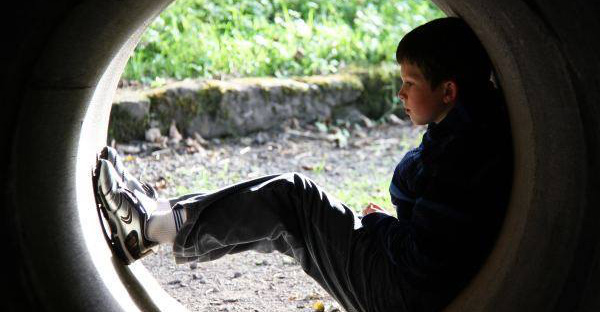Resolving Shyness in Social Situations
Understanding the Chemistry of Shyness For Positive Change

Listen to our essential, one-of-a-kind, FREE library of clinical interviews which demonstrate life changing success since 1978.
The reason the title of my first book was “Beyond Shyness: How to Conquer Social Anxieties” is because shyness is all too often an abstract word and concept to be functional. In other words, it’s important to go beyond shyness for any practical understanding to facilitate change.
According to The American Psychological Association” shyness is the tendency to feel awkward, worried or tense during social encounters, especially with unfamiliar people. Severely shy people may have physical symptoms like blushing, sweating, a pounding heart or upset stomach; negative feelings about themselves; worries about how others view them; and a tendency to withdraw from social interactions”.
In order to understand helplessness it’s important to consider the avoidance-dependence dynamic that has, in essence, rendered the mental health profession unproductive in its attempt to provide therapeutic services for shy people. For example, I received a call from the mother of a 26 year old who said “can you help my son? He’s very shy. My response “yes, but I need to see the parents first”. Her response; with quite a bit of indignation, “why do you want to see us. He’s 26 years old”. My response why are you making the phone call? When the “shy” person of any age is in counseling or psychotherapy an important variable to assess is does the individual have any initiative for healing? If initiative is not present it is imperative for caregivers to develop an empowering strategy. If this strategy is not integrated into treatment, in most cases the process will be unproductive.
The most profound example of confusion regarding shyness at an early age is selective mutism. Selective mutism is a condition where child does not talk in interactive situations. While there are variations of this disorder, the common scenario goes something like the parent saying “my child talks normally at home, it’s just at school where there is a problem”. The typical response from professionals, and usually the belief of the parents is the grow out of shyness mantra. Here’s the reality. Take it or leave it. While the selectively mute child exhibits signs of shyness a very ingrained anxiety response driven by the obsessive compulsive mind is at work. The “grow out of It” belief is one of the ultimate examples of denial. This denial perpetuates over-dependence and avoidance which sucks the life out of the shy person’s potential and self-esteem.
When the shy person avoids challenging scenarios because of awkwardness, or feeling reserved, skills acquisition is at risk. This leads to performance anxiety. Work Makes Me Nervous is a self-help book for performance anxiety at work.

There is a tendency with common existing therapies to fit social anxiety disorder into the narrow confines of one specific approach. The Berent Treatment Method for Social Anxiety is based on adapting treatment to the specific needs of social anxiety. The treatment architecture includes transactional analysis-based mind state training, core work based on the Sarno method, and the paradoxical technique of adrenaline control. Very importantly, the method is customized for the individual with and without initiative.
Think you may have social anxiety?
-
Clinical Interviews
on Shyness
The Most Evidence Based Clinical Success for Social Anxiety Since 1978
Treatment Available Worldwide
- Ask Jonathan
- Self Help Programs
-
“Warm Hands Cool Face” A Self-Help Clinical Program for Blushing Anxiety & Erythrophobia
$57.00 – $75.00Price range: $57.00 through $75.00
-
Bio-card
$1.00
-
Work Makes Me Nervous
$24.95
Helpful Articles on Shyness
Social-Anxiety.com
We explore the complexities of social anxiety with renowned psychotherapist Jonathan Berent. We delve into two contrasting cases: a high-achieving physician facing
Psycho-physiological Therapy for Public Speaking Anxiety & Fear of Being Noticeably Nervous Public speaking anxiety is the #1 phobia which is often
Jonathan Berent, L.C.S.W., author of “Beyond Shyness” (Simon & Schuster) and “Work Makes Me Nervous” (Wiley) has identified technology compulsion as the gateway to an alternate reality for individuals of
Rob went to college for a week until his social anxiety got the best of him and he retreated home. At age 26 he worked sporadic jobs with no continuity,
Sterling Heights October 16, 2012 By Cortney Casey, C & G Staff Writer The approximately 250 strangers conversing amongst themselves fell silent and turned their attention to Patty Kukes as










